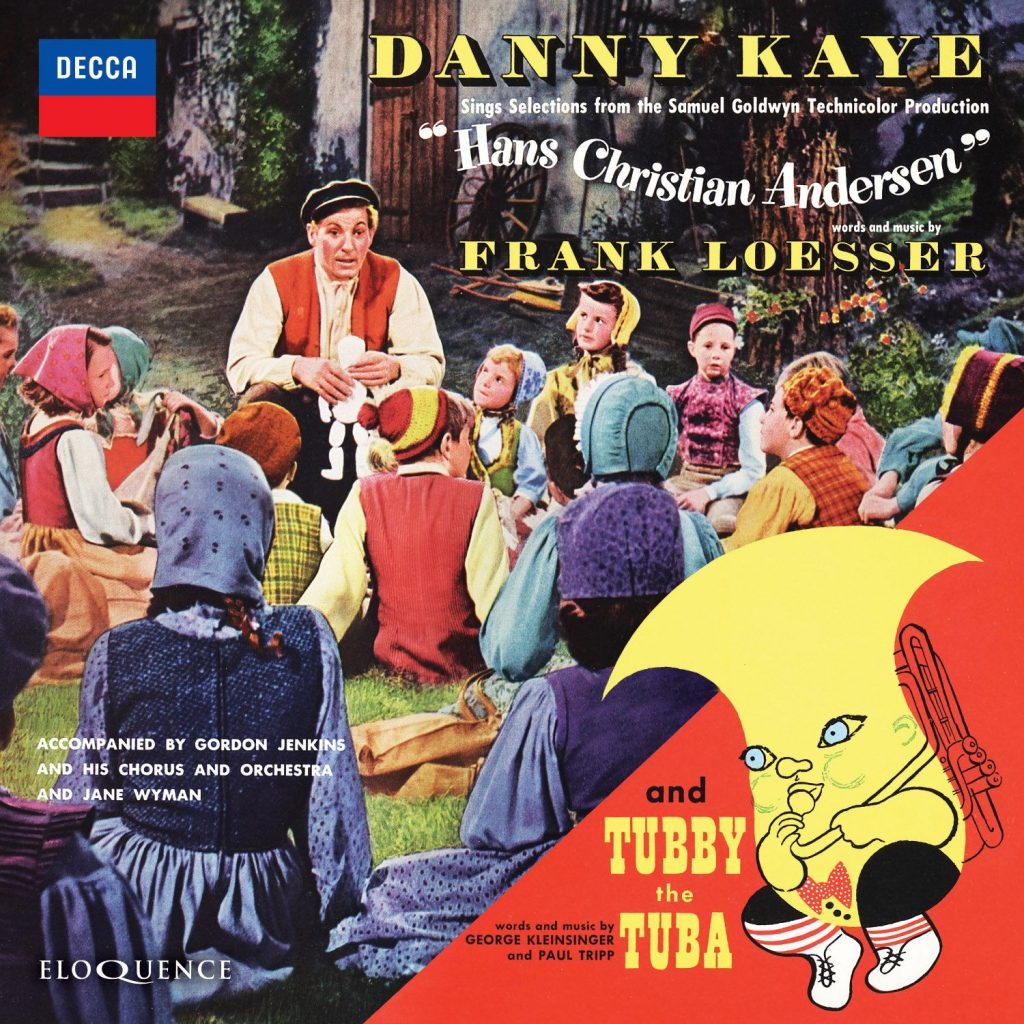Hans Christian Andersen, the film, was produced in the spring of 1952 and released on 25 November in New York, with general release following in December that year. It was one of the top ten grossing films of the year, but was not well received in Andersen’s hometown of Odense, when it was released in Denmark in September 1953. It was nominated for six Academy Awards: Best Colour Cinematography, Best Art Direction and Set Decoration (Colour), Best Costume Design (Colour), Best Scoring of a Musical Picture (Walter Scharf), Best Song (‘Thumbelina’), and Best Sound Recording. Decca (US) recorded the soundtrack in August that year and the songs were originally released as a series of four 78rpm singles, with two songs per disc, a 45rpm album, and a ten-inch LP.
Danny Kaye took the lead, and when the album was reissued (on Decca and MCA) on a twelve-inch LP, four further tracks were added: Tubby the Tuba as well as its less-well-known sequel, Tubby the Tuba at the Circus, and two additional songs written by Kaye’s wife, Sylvia Fine.
Now, for the first time on a Universal Music label, the original tapes have been retrieved from the archive and newly remastered for release on Eloquence.
Hans Christian Andersen
Words and Music by Frank Loesser (1910–1969)
1 I’m Hans Christian Andersen
2 Anywhere I Wander
3 The Ugly Duckling
4 The Inch Worm
5 Thumbelina
6 No Two People [with Jane Wyman]
7 The King’s New Clothes
8 Wonderful Copenhagen
Danny Kaye, vocals
Gordon Jenkins and his Chorus and Orchestra
9 Tubby the Tuba
Music by George Klensinger (1914–1982)
Story and Lyrics by Paul Tripp (1911–2002)
10 Tubby the Tuba at the Circus
Music by George Klensinger (1914–1982)
Story and Lyrics by Paul Tripp (1911–2002)
11 Uncle Pockets
Music and Lyrics by Sylvia Fine (1913–1991)
12 There’s a Hole in the Bottom of the Sea
Music and Lyrics by Sylvia Fine (1913–1991)
Danny Kaye, vocals
Victor Young and his Orchestra
Recording: Decca Studios, Los Angeles, USA, 11–13 August 1952
First Decca Release: DL 5433: 1952
“His singing of ‘Wonderful Copenhagen’, with a variety of choruses, is full of bounce, and he puts ingenuousness and flavor into ‘Thumbelina’ and ‘The King’s New Clothes’. His singing of the tale of ‘The Ugly Duckling’ to a shaven-headed boy has wistful charm, as has his flutey solo of “Inch Worm” against a chorus of children singing in school.’ The New York Times, November 1952

